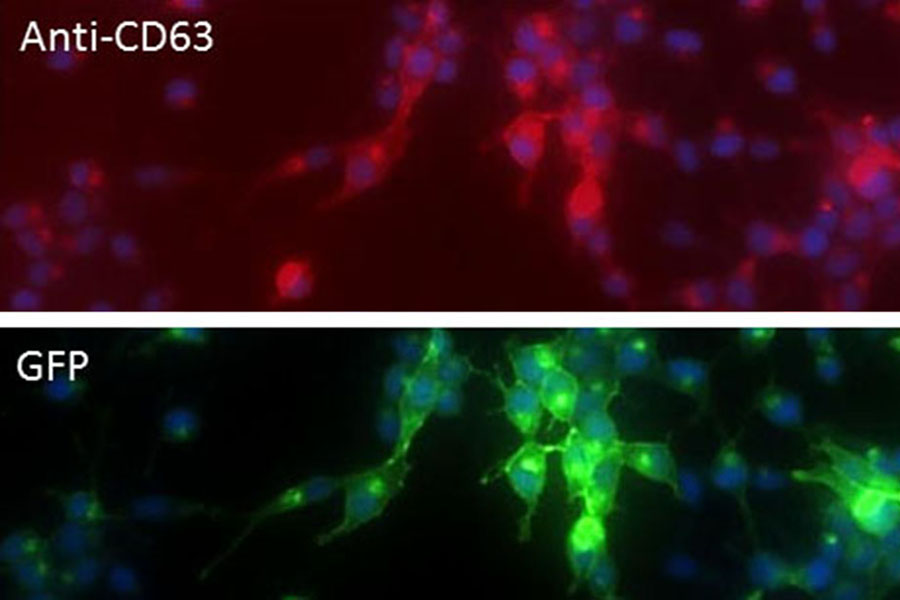Repurposed Drug Approach May Thwart Spread of Cancer Cells

NCATS experts helped NIH-supported scientists use a new approach to find drugs that may help prevent the spread of prostate cancer. The top image shows antibodies (labeled with a red dye) that target CD63, a protein found on exosomes. The bottom image shows an advanced prostate cancer cell line that has been genetically engineered to turn on a protein that glows green and attaches to CD63.
For cancer cells to spread to other places in the body, they need to communicate with each other. One way they do this is through chemical messages delivered in exosomes, which are biological sacs that carry information from cell to cell. Scientists have evidence, for example, that one type of genetic material called “extracellular” RNA (exRNA) contained in exosomes can play a role in prostate cancer growth. While scientists would like to better understand the role of exosomes in cancer, they also see a potential treatment opportunity. But no current drugs target exosomes in cancer cells.
Now, researchers supported through NCATS’ Extracellular RNA (exRNA) Communication program, which is funded through the NIH Common Fund, are taking a novel approach to exosomes in cancer. Tulane University School of Medicine’s Asim B. Abdel-Mageed, D.V.M., Ph.D., in collaboration with an NCATS team of preclinical researchers led by Marc Ferrer, Ph.D., recently published new findings in Scientific Reports. The team found several different types of drugs — including antibiotics, antifungal medicines and anti-inflammatory agents — were effective in preventing advanced prostate tumor cells from releasing exosomes or in blocking exosome production. Much work remains to determine which individual drugs might be useful in patients.
“These compounds and drugs alone aren’t going to shrink tumors but would likely reduce growth and prevent the cancer from spreading further when administered with standard therapies,” said Ferrer. “This study shows that cost-effective, repurposed drugs can potentially affect cancer treatment by targeting new mechanisms.”
The scientists believe that further research into this approach could be useful in other advanced cancers, and in diseases such as Alzheimer’s disease.
Posted June 2018


